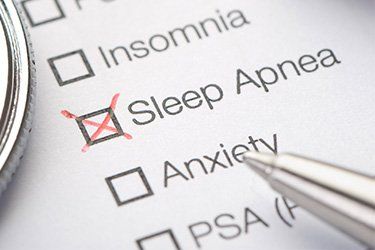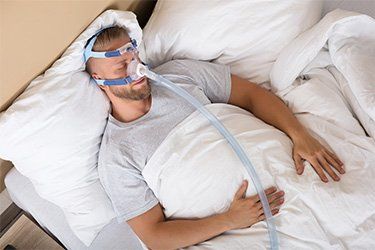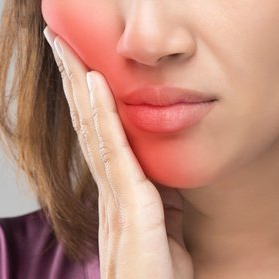Heart Disease, Cardiovascular Disease and Sleep
Did you know that the quality of your sleep can significantly impact your heart health? Many are unaware of the intricate relationship between sleep apnea and cardiovascular disease. Find out what effects untreated sleep apnea can have on your cardiovascular system and what you can do to protect your health today.
How Can We Help You?
What Is Cardiovascular Disease?
Cardiovascular disease is an umbrella term to describe diseases that involve the heart or blood vessels. This umbrella term includes coronary artery disease, heart failure, valvular heart disease, and more. The health of your cardiovascular system is crucial, as it directly influences your overall wellbeing and longevity.
How Common Is Cardiovascular Disease?
Cardiovascular disease is shockingly prevalent, affecting millions worldwide. According to the CDC: “one person dies every 33 seconds in the United States from cardiovascular disease.” This condition affects people of all ages and ethnicities and is reported by the American Heart Association to have been the underlying cause of over 900,000 deaths in 2020.
Symptoms of Cardiovascular Disease
The symptoms of cardiovascular disease can vary depending on the specific heart condition a person has. Common symptoms of cardiovascular disease include:
- Chest pain
- Pressure or discomfort in the chest
- Shortness of breath
- Fatigue
- Dizziness
- Fainting
- Leg pain or swelling
- Numbness in face or limbs
Risk Factors of Cardiovascular Disease
Several factors contribute to the development of cardiovascular disease. Lifestyle choices such as poor diet, lack of exercise, smoking, and excessive alcohol consumption play a significant role. Additionally, age, genetics, and certain health conditions contribute to the overall risk, such as:
- High blood pressure
- High cholesterol
- Type 2 diabetes
- Obesity
What Is Heart Disease?
Heart disease, a type of cardiovascular disease, refers to conditions that specifically target the heart such as coronary artery disease, heart failure, abnormal heart rhythms, and congenital heart disease.
How Common Is Heart Disease?
Heart disease is the leading cause of death in the United States for nearly every racial group. In fact, according to the American Heart Association, heart disease and stroke claim more lives each year in the United States than all forms of cancer combined.
Symptoms of Heart Disease
Common symptoms of heart disease include:
- Chest pain or discomfort
- Shortness of breath
- Fatigue
- Irregular heartbeats
- Dizziness
Risk Factors of Heart Disease
Similar to cardiovascular disease, heart disease is influenced by various risk factors. Lifestyle choices, family history, age, and underlying health conditions all contribute to an individual's risk of developing heart disease.
What Is Obstructive Sleep Apnea?
Obstructive Sleep Apnea (OSA) is a sleep disorder characterized by repeated interruptions in breathing during sleep. These interruptions, called apneas, occur when the muscles at the back of your throat relax excessively, blocking the upper airway. As a result, airflow is temporarily reduced or stopped, leading to sleep deprivation and poor sleep quality. If left untreated, OSA can even lead to high blood pressure, heart failure, and other fatal health complications.
How Common Is Obstructive Sleep Apnea?
Obstructive Sleep Apnea is more common than you might think. It is estimated to affect nearly 1 billion people around the world. In the United States, OSA is estimated to affect 25-30% of men and 9-17% of women.
Symptoms of Obstructive Sleep Apnea
Common symptoms of obstructive sleep apnea include:
- Snoring
- Gasping or choking during sleep
- Morning headaches
- Sleep deprivation
- Unexplained mood changes
- Difficulty concentrating
- High blood pressure
Risk Factors of Obstructive Sleep Apnea
Certain factors increase the risk of developing OSA. These include obesity, old age, family history, and anatomical features such as a narrow airway or enlarged tonsils. Lifestyle choices such as smoking and excessive alcohol consumption can also increase a person’s risk of developing OSA.
The Link Between Sleep Apnea, Heart Disease, and Cardiovascular Disease
The connection between obstructive sleep apnea (OSA) and other forms of sleep-disordered breathing and cardiovascular disease is well established. Sleep apnea can lead to high blood pressure, heart disease, and other cardiovascular issues because apnea events during sleep (the moments when you stop breathing) reduce blood oxygen levels. The repetitive drops in blood oxygen levels put immense strain on the heart and can contribute to long-term damage and even heart failure. Most people are not aware of the impact on your heart health sleep apnea can have, but poor sleep is more than just an inconvenience—it’s a serious health risk.
Any person suffering from reduced airway volume during sleep would be very wise to seek help immediately to prevent the drop in nighttime oxygen levels that create inflammation throughout the body. Eliminating these drops in blood oxygen saturation reduces an individual’s risk of high blood pressure, arrhythmia, stroke and heart failure.
Obstructive Sleep Apnea Treatment Options
There are several common treatment options for people who suffer from obstructive sleep apnea.
CPAP (Continuous Positive Airway Pressure) – This treatment requires patients to wear a mask over the nose or mouth while sleeping. The CPAP machine delivers a continuous stream of air to prevent the airway from collapsing. It is effective but often noisy and uncomfortable to the point that many patients find it difficult to use their CPAP machines.
BiPAP (Bilevel Positive Airway Pressure) – Similar to CPAP, the BiPAP machine delivers air, but it adjusts the pressure levels during inhalation and exhalation. This dual-level pressure can be more comfortable for some patients, especially those with difficulty exhaling against continuous pressure. However, like a CPAP machine, it can also be uncomfortable and hard to get used to.
Oral Surgery – For individuals with severe OSA caused by their anatomy, surgical interventions may be an option. There are a variety of procedures that include removing excess tissue in the throat or repositioning the jaw to handle OSA, but these are often a last resort treatment option.
Vivos Oral Appliance – The Vivos Oral Appliance is a customized device that fits comfortably in the mouth. It repositions the jaw and tongue to keep the airway open during sleep and prevent the interruptions that lead to cardiovascular strain. This option is often favored for its simplicity, comfort, and effectiveness.
Why Choose Vivos Oral Appliance Therapy?
The FDA-approved Vivos-brand oral appliance works inside the mouth to open the airway and provide permanent relief from OSA and other sleep-disordered breathing issues. It is comfortable, simple, noninvasive, and safe. By promoting optimal jaw and tongue positioning during sleep, the Vivos appliance helps maintain open airways, preventing the interruptions that lead to cardiovascular strain and fatal heart health problems.
Frequently Asked Questions about the Vivos System
Here are answers to common questions patients have about the Vivos System of oral appliance therapy.
Benefits of Vivos Oral Appliance Therapy for Sleep Apnea
You can experience a ton of great health benefits when you choose Vivos Oral Appliance Therapy to manage your obstructive sleep apnea, such as:
- Comfortable Sleep – Enjoy restful nights without the discomfort of masks or machines.
- Noninvasive Treatment – Unlike surgical options, Vivos therapy is noninvasive and doesn't require lengthy recovery periods.
- Enhanced Quality of Life – Experience increased energy levels, improved mood, and enhanced cognitive function with better sleep.
- Reduced Health Risks – Reduce the health risks associated with untreated sleep apnea like high blood pressure and heart failure.
- Convenient Treatment – Easily transport your oral appliance, ensuring consistent treatment whether at home or away.
Call Breath of Life Dental for an Evaluation
Better breathing means more oxygen and lowered mortality risk. Contact Breath of Life Dental to attend an educational seminar or to schedule a private consultation with Dr. Maryam Seifi. Schedule online or call (301) 818-2653 today.
Don't let sleep apnea silently impact your heart. Act now for a healthier, more vibrant future with Breath of Life Dental.












